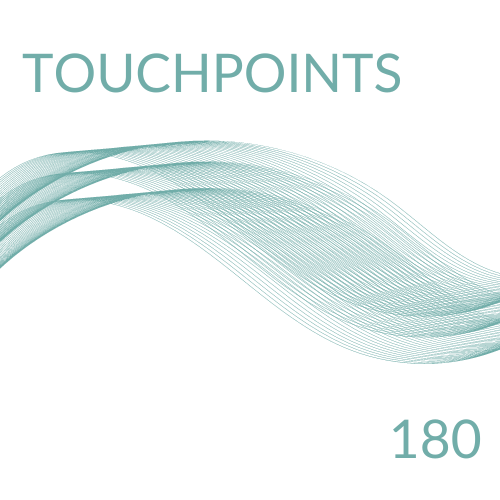
Trish sludged through the day. Life had gotten so hard. Her nursing job had become almost insurmountable. Patients needed her, but her energy was drastically depleted, and she didn’t know why. The mental acuity she’d always relied on… seemed spongy, foggy somehow. If she couldn’t fix this, she could lose her job. Then what would she do? She decided she could take a break before her patients needed their next round of medications, so she slipped into the break room to try to clear her head. A bag of chips, a packaged sugar-free cinnamon roll from the machine, and a diet drink might revive me, she thought. After the break, she felt weighed down, and her outlook was no better. The food felt good while she was eating it, but didn’t do much for her condition. Little did she realize, these ultraprocessed foods (UPF) and her depression symptoms were related.
Too Much Artificial Sweetener
Somehow she finished her shift, and drove home. She kicked off her shoes, and stretched out on the sofa. Before long, she was asleep.
Around midnight, she woke up – so foggy-headed – and stumbled to her bed.
At 5am, her alarm sounded. She dragged herself out of bed and into the shower.

I feel so bad. This is awful. How can I get the real me back? Trish was beginning to feel desperate.
She called in sick to work, then made an appointment with her doctor. While she sat in the waiting room, she noticed a printed article on the table about ultraprocessed foods. As she glanced over it, she saw it reported a study about the link between ultraprocessed foods and depression.
Depression? She wondered…
It described a study of 31,712 women who reported information about their diet every four years. The average age of the women was 52, and since Trish was 51, she thought this might apply to her.
So she kept reading. The study found that those who consumed more than 8.8 servings a day of artificial sweeteners or artificially sweetened drinks, had a 50% higher risk of depression than those who consumed less than 4 daily servings.
Alarming!

It was incredible that nurses were the subjects of the study! Since Trish was a nurse herself, she wondered if all this was related to how super busy nurses are, and how they often have trouble taking time to eat healthy food — and often survive on snacks, diet drinks, and iced tea with artificial sweeteners…? She could sure relate to that.
The article pointed out that it would require a vast amount of research to study all the elements in ultraprocessed foods. Plus, whether each one is associated with depression. Still, they did find a strong link between high consumption of artificial sweeteners and episodes of depression.
Wow–artificial sweeteners, or sugar, is in just about everything you buy that is low fat or low cal, or zero cal.
Was Her Consumption of UPF Too High?
Trish contemplated this. Could it be?
She also knew that there were plenty of nurses who watched what they ate more closely than she did, and who drank water instead of diet drinks. They also were the ones who kept their stamina up by jogging or working out at the gym before or after work. Overall, they were the health conscious ones.

For Trish, the idea of exerting herself any more than she already did at work…well, it sounded like a defeated idea before she even tried. She had absolutely no extra energy for all that, and didn’t feel emotionally up to putting out any extra effort. She was doing all she could with her job, and bolstered herself with caffeine.
It was all she could handle, doing all she could with just her job — and she certainly bolstered herself with caffeine. Coffee, Starbucks, Dunkin, and diet drinks — she liked them all. And she always used artificial sweeteners, because she didn’t want the calories of sugar.
Ultraprocessed Foods Linked to Depression – What a Concept!
When she was called in to see her doctor, she mentioned the article. She described her symptoms, her misery, and her worry that she was losing her ability to do her job well.
He nodded his head in agreement throughout her comments.
He said, “Trish, you do sound depressed. That would account for your outlook, feeling overwhelmed, and your lack of energy. It could also be contributing to your weight gain, high blood pressure, and cholesterol. It’s amazing how all these symptoms seem to go together with a metabolism out of whack. Recent studies like the one you read about today support the need to get your metabolism back on track.

A Program With a Solution
“I’d like you to see a psychiatrist near here who has a wonderful practice in Metabolic Psychiatry. Her program helps people whose metabolisms are out of balance, and the consequential depression… as well as other metabolic problems.

Touchpoints 180™
“She offers a comprehensive program, without medication, that can treat your depression. The beauty is that it will likely resolve your brain fog, as well as energy deficit…and will help you lose weight easily, too. Many people see their cholesterol drop, and their blood pressure, too.
“Why don’t you make an appointment with her, work on her program, and come back and see me in 3 months? We’ll re-evaluate your symptoms again at that point.”
Trish left with a renewed sense of purpose.
She didn’t feel any better, but maybe this new doctor could help her get to the bottom of what was wrong with her body and outlook. Once she reached her car, she called the number her doctor had given her, and made an appointment to be evaluated for their Metabolic Psychiatry program.
Metabolic Psychiatry
After she met with the psychiatrist, and with the registered dietitian-nutritionist, Trish learned about how they would use food as medicine, by helping her switch from glucose to ketones as the primary energy source for her cells. She learned that would help her achieve therapeutic nutritional ketosis, and how that would improve her energy, clear her brain fog, lift her depression, and tamp down the anxiety.

There was so much science here that for once, she believed it.
Plus, she learned that once her body was in therapeutic nutritional ketosis, it would seek fat to consume for energy, making use of excess body fat, as well as good fats in her diet. She knew about the mitochondria being the power house of the cells, but had never learned about all this before.
So that’s how it helps you lose weight, she thought.
The Registered Dietitian provided her with so many opportunities to fine tune this, learn, eat food that she really liked, with customized ideas for meals …and showed her what to do to ensure she stayed ketogenic when she was at work. Options, food that was easy, and ratios that were right for her.
Ultraprocessed Foods Linked to Depression: Especially Sweeteners
The first step she took was to drop diet drinks from her diet… and switch to water, like the health conscious nurses she worked with. The research had blown her away. The dietitian encouraged her to think in terms of feeding her cells with efficient energy through ketones, rather than trying to compensate with caffeine.

So, she stopped at the grocery store to buy whole, healthy foods for her new diet. Things like salmon, scallops, chicken, cream for sauces, cheeses, olive oil, eggs, broccoli, bell peppers, and pistachios.
It was a little uncomfortable tapering off all that caffeine, and getting away from the sweeteners and the diet drinks. But it got easier quickly. Within a week she could feel an improvement in her brain fog.
How about that? She mumbled to herself when she noticed. So far, so good…
Transformative Ketogenic Diet
After a long weekend, she was ready to go back to work. She took small snacks of cheese and fresh vegetables, and bottles of water, so she could avoid the cafeteria or vending machine. Last night, she had prepared salmon and broccoli for dinner, so she brought left-overs for lunch. She realized some simple planning was going to help this new lifestyle work.

When she got off work that afternoon, she drove home, then walked to the nearby park. She hadn’t enjoyed the fresh air — or even noticed it — in a very long time. Something was improving.
Trish found she was beginning to feel enjoyment again over the coming weeks…a feeling like it was good to be alive. The overwhelm that had suffocated her seemed to be subsiding, and she found she had the energy to get her work done with time to spare.
3 Months Showed Her the Proof of the Pudding
When she returned to her PCP 3 months later, she’d lost 12 lbs, and had never expected that much! Plus, her blood pressure was improving. Wow. It was working!

After her bloodwork, she decided to go to the animal shelter and see if she could find a kitty to take home. Actually, she read she should adopt 2 kittens to keep each other company while she was at work. It was a fun exercise, and she marveled that she had the emotional energy to consider a pet. She decided to give it a little time to be sure she was stabilized before she added the responsibility of another household member. But it was fun to think about.
Two days later, she heard from her doctor’s office that her blood sugar and triglycerides were coming down, too.
The combination of her improved cognition, her mental clarity, and bright outlook, and the changes she was seeing in her body (and her bloodwork) were all proof that this was the lifestyle change she needed, and she got excited about continuing to living this life, this way. She didn’t want to ever go back to the awful way she felt before.
6 Months and She was On All New Ground

To celebrate 6 months of ketogenic living, she decided she was plenty stable and getting better every day. So she drove to the animal shelter and played with the kittens. Two of them, a gray and white one, and an orange tabby, were especially playful with her, so she adopted them both and took them home.
She named the gray and white one Keto, and the tabby seemed like a Genie. Every time she called them by name she was reminded of her new life, new hope, and new metabolism because of ketogenic psychiatry.
She could have named them Hope and Joy, but this was far more thrilling. Gratitude filled her heart as she looked at these two babies pouncing all over her house, her legs, and her heart.
At 52, Trish had a new lease on life.
How is the New Year looking for you?
Do you have hope, energy, and purpose? Or do you feel overwhelmed, fatigued, mentally fuzzy, and discouraged?

Metabolic Psychiatry can help you get your metabolism back on track, improve your A1C, brighten your outlook, relieve depression symptoms, increase your physical and mental energy, and restore your hope and enjoyment in life. A big help can be reducing ultraprocessed foods that are linked to depression… especially artificial sweeteners.
And by eating low carbohydrate foods, and foods high in good fats, you can give your cells what they need to thrive.
Using food as medicine, you can feel restored and healthy again.
If you suffer with symptoms of depression, overwhelm, lack of energy, and other metabolic symptoms like Trish, and you’re sick of it, call us.
Our Touchpoints 180™ program can help you find the real you again, relieve you of metabolic and depression symptoms, without medication…using food as your medicine.
You’ll be amazed at how much better, and hopeful, you can feel.

To the restoration of your best self,
